In present-day Bosnia and Herzegovina, economically depressed towns turn themselves into tourist destinations in order to survive—deliberately forming their own cultural narratives. Centering on four different locations, The Stone Speakers interrogates a nation’s contradictory memories. Made with subtlety and tactful distance, director Igor Drljaca’s film reveals the traumatic consequences of being a country that is stuck in a postwar identity crisis.
Related Movies

We The North: From Prehistoric to Historic (2025)
A basketball team born out of an egg, in a hockey-crazed city, playing in a baseball stadium, fights for survival and ultimately conquers a nation and the league. This documentary offers an in-depth look at how a fledgling franchise transformed into a cultural phenomenon, uniting communities and reshaping Canada's identity. The Raptors' story is the ultimate underdog tale, with an unprecedented look into the team's global impact and lasting influence across Canada and beyond.

Inbound (2025)
Documenting the shared trajectory between Canada’s rise as a global basketball powerhouse and the circumstances that helped shape the country’s multicultural identity.

In Bed with an Elephant (1987)
This feature documentary provides a gripping retrospective of United States-Canada relationships through a study of successive presidents and prime ministers. Using archival film footage, it demonstrates that Canadian prime ministers, from John A. Macdonald down, all began their tenures by making overtures to their American counterparts. Attitudes and outcomes have varied widely. The almost comic antipathy between Kennedy and Diefenbaker, for instance, is as palpable here as is the folksy camaraderie of Reagan and Mulroney. Part four of Reckoning: The Political Economy of Canada series.

Nanook of the North (1922)
This pioneering documentary film depicts the lives of the indigenous Inuit people of Canada's northern Quebec region. Although the production contains some fictional elements, it vividly shows how its resourceful subjects survive in such a harsh climate, revealing how they construct their igloo homes and find food by hunting and fishing. The film also captures the beautiful, if unforgiving, frozen landscape of the Great White North, far removed from conventional civilization.
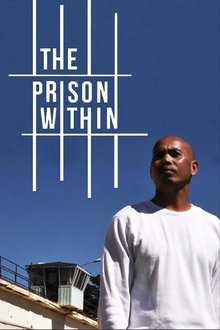
The Prison Within (2020)
Survivors of violent crimes and prisoners incarcerated for murder connect to undergo astonishing transformations, liberating themselves from the debilitating constraints of trauma, and shattering preconceptions of "us and them."

In the Name of Confucius (2017)
One of Canada's top 10 universities and its largest school board found themselves embroiled in a growing global controversy as scholars, parents, and officials question the Confucius Institute program's true purpose.
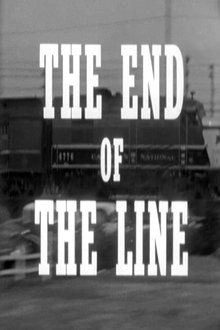
The End of the Line (1959)
This documentary short offers a nostalgic look at the steam locomotive as it passes from reality to history. In its heyday, the big smoke-belching steam engine seemed immortal. Now, powerful and efficient diesels are pushing the old coal-burning locomotives to the sidelines, and the lonely echo of their whistles may soon be a thing of the past.
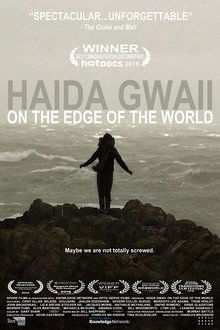
Haida Gwaii: On the Edge of the World (2015)
Denizens of the British Columbia archipelago unite to protect their land.

Deep Inside Clint Star (1999)
Director Clint Alberta takes us on a hilarious and bittersweet journey into the hearts and minds of some very ordinary, extraordinary young Canadians. Clint, taking on the role of Clint Star, seeks out his far-flung buddies, young Natives like himself. They talk about sex and life... love and abuse... 500 years of oppression--with humour, grace and courage. Deep Inside Clint Star explores issues of identity, sexuality and intimacy, while retaining the creative and playful style of a director who is not afraid of turning the camera on himself. This engaging documentary will draw you out of yourself and deep inside Clint Star.

Tranças (2019)
Autobiographical documentary that brings the theme of parental alienation through the affectionate gaze of a Brazilian grandmother abruptly removed from her Argentine granddaughter after her son's marital separation. In the search for contact with the girl, a grandfather is faced with legal barriers, negative attorneys and several possible fr. During this tortuous journey, she meets people in a similar situation and is part of a worldwide solidarity network.

First Stories: Two Spirited (2007)
This short documentary presents the empowering story of Rodney "Geeyo" Poucette's struggle against prejudice in the Indigenous community as a two-spirited person.

The Great Canadian Toy Story (NaN)
From rags to riches, the behind-the-scenes story of Canadian toy manufacturer Spin Master is an inspiring saga of creativity and innovation.

To the Tar Sands (2008)
To The Tar Sands follows a group of nineteen young environmentalists as they cycle over 1,300 kilometres northbound across Alberta to witness the impacts of Alberta’s tar sands boom firsthand. They talk to farmers, moms and dads, an urban planner, oil industry workers, the chief of a First Nations community and others along the way asking “How has the tar sands boom affected you?” As the kilometres click away, they excavate into their own complicity with Alberta’s rush to develop the tar sands.

The Pig Farm (2011)
The life and murders of one of the worst serial killers in history, Robert Pickton who went unchallenged for decades.
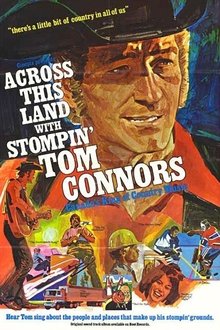
Across This Land with Stompin' Tom Connors (1973)
Stompin' Tom performs live at the Horseshoe Tavern on Queen St. in Toronto.
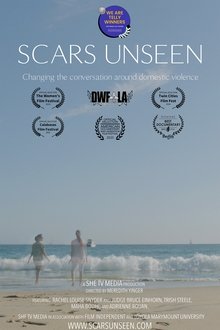
Scars Unseen (2024)
Scars Unseen is a ‘triumph of the human spirit’ documentary following three women who have overcome domestic violence and are paying it forward. Due to the COVID-19 pandemic, the statistic of 1 in 4 women affected by domestic violence went up to 1 in 3 women. This inspiring documentary highlights each individual’s experience involving domestic violence, focusing not on the grim details of their trauma but rather on the tools and techniques that helped them to persevere on their healing journey. Scars Unseen aims to illuminate the power of healing, de-stigmatize victimhood, and encourage open communication about the causes, treatment, and prevention of abuse. This documentary focuses on the resiliency of three phenomenal women and encourages us all to be more trauma-informed. Scars Unseen is changing the conversation around domestic violence.
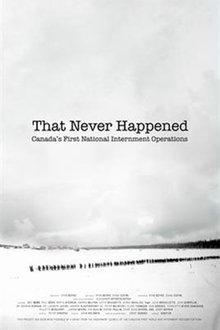
That Never Happened: Canada's First National Internment Operations (2018)
The documentary tells the little known story of thousands of Ukrainian and Eastern Europeans that were interned in Canadian camps during the First World War.

Terry's Little Village (2024)
Terry Wilson is a 70-year-old lifelong resident of Meadowvale Village, Ontario's first heritage district. As development looms and begins to destroy Terry's favourite place in the world, he recreates pieces of history in his backyard, crafting an oasis where it feels like nothing has changed. A beautiful tribute to his childhood, his mother, and his town, Terry passionately fights to preserve history in a world that's too anxious for change.

Polar Life (1967)
Polar Life’s novelty was its theatre, with the audience seated on a central rotating turntable in the middle of eleven fixed screens. Viewers have described the intricate juxtaposition of screen images and narration and the complex relationship created between moving spectators and multiple screens. Documentation images and scripts of the bilingual narration by Lise Payette and Patrick Watson show elaborate temporal and spatial representations of the Arctic and Antarctic regions: the Inuit in daily activities in the Canadian North; other northern peoples of Alaska, Lapland, and Siberia; and settlers from the South, scientists, explorers, and other inhabitants of the landscape, including reindeer, bears, and birds. Archival film footage of early northern explorers, combined with newly shot documentary footage, was edited across the various screens to create spatial relationships that are sometimes coherent, sometimes fragmented.

Big Brother: A World Under Surveillance (2020)
Under the pretext of fighting terrorism or crime, the major powers have embarked on a dangerous race for surveillance technologies. Facial recognition cameras, emotion detectors, citizen rating systems, autonomous drones… A security obsession that in some countries is giving rise to a new form of political regime: numerical totalitarianism. Orwell's nightmare.